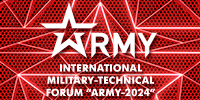Hypersonic weapons will comprise the backbone of Russia’s non-nuclear deterrence forces, Russian Defense Minister Army General Sergei Shoigu said at an annual operational and mobilization gathering of commanders on Tuesday.
Follow New Defence Order. Strategy on Google News.
"The potential of non-nuclear deterrence forces, primarily, precision weapons, is being strengthened. Hypersonic systems of various basing will comprise their backbone," the defense chief stressed.
As the Russian defense minister said, "the Army and the Navy are constantly fulfilling tasks that require commanders to have a profound command of the situation, knowledge of the capabilities of their forces and resources, a creative approach and a reasonable initiative."
The professional level of Russian officers is constantly improving as well as the quality of the fulfillment of tasks by military command centers while the combat experience is being timely put into practice, Shoigu said.
As the Russian defense chief recalled, "a lot of methods and techniques of combat operations that were not used previously were implemented during the operation in Syria." "It is necessary to improve them and use them in the training of headquarters and troops," Shoigu stressed.
As the Russian defense chief said, "the peacekeeping operation in Nagorno-Karabakh has also confirmed the high skills of the Armed Forces’ command."
According to the defense minister, "robotized systems, unmanned aerial vehicles and automated command and control systems are being used increasingly widely in combat training."
Last year, we fulfilled the order by the supreme commander-in-chief given in the May 2012 decree: the share of advanced armament and military hardware in the troops amounted to 70.1%," Shoigu stressed.
"Now it is necessary to provide for introducing artificial intelligence technologies into the armament that defines the future outlook of the Armed Forces," the defense chief said.
Organizational and mobilization gathering of commanders
As the Russian defense minister stressed, "the commanders need to constantly improve their professional skills and knowledge and introduce advanced methods into the training practice of military command centers of military formations and units."
"Proceeding from this, modern and promising forms and methods of troops’ operations will be considered in the theoretical part of our work, taking into account the experience of various armed conflicts," Shoigu said.
"As part of practical work, we will hold roundtable discussions to focus on the issues of exerting all-embracing impact on the enemy, covering our troops and fighting unmanned aerial vehicles and cruise missiles," the defense chief said.
"We will also pay attention to developing the combat training system and the promising methods of holding force-on-force tactical drills," Shoigu said.
According to the Russian defense minister, "a strategic force-on-force command and staff military game" will be a basic feature of this year’s organizational and mobilization gathering of the command staff.
"At the final stage, we will practice measures at the Alabino training ground to organize combat operations, employing the integrated tactical-level command and control system," Shoigu said.
Russia’s defense chief said he was confident that the operational and mobilization gathering of commanders "will contribute to raising the professionalism of the commanding staff and commanders and become an important stage in preparations for the Zapad 2021 joint strategic drills."
Source: TASS








